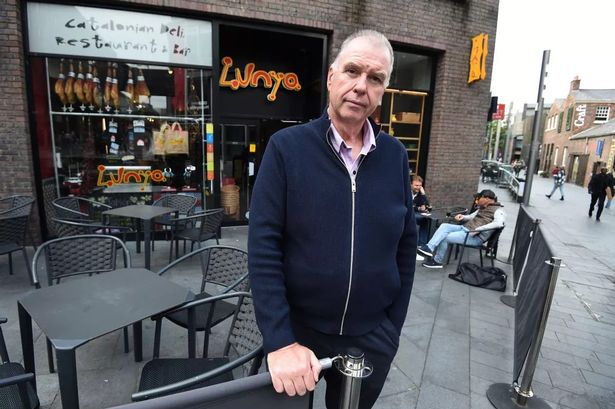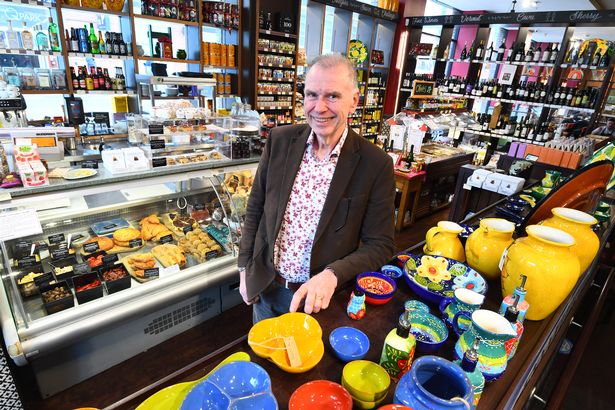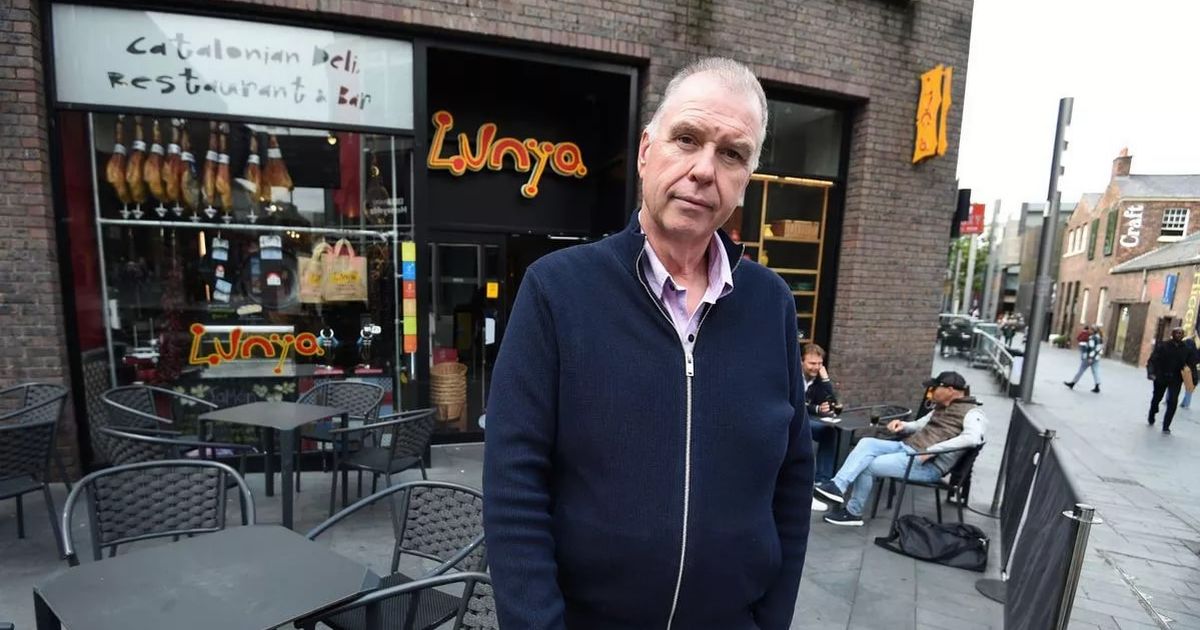Peter Kinsella said his business is on “absolute emergency rations” Peter Kinsella, founder of Lunya(Image: Andrew Teebay Liverpool Echo)
Peter Kinsella, founder of Lunya(Image: Andrew Teebay Liverpool Echo)
A restaurant owner has shared his business is “running on empty” following the rise in employer’s National Insurance contributions earlier this year. Peter Kinsella, 61, is the founder and chairman of Lunya, a deli, restaurant and bar that has been on Hanover Street in Liverpool city centre for 15 years.
He opened Lunya with wife Elaine, 60, in 2010 and the couple have worked tirelessly to create their beloved Catalan restaurant, bar and deli. Since opening their first restaurant on School Lane, the couple have expanded to a Hanover Street restaurant and deli, as well as their ‘little sister’ venue Lunyalita on Liverpool’s famous Albert Dock.
Over the course of their 15 years in the industry, the couple have built up a loyal list of hundreds of regular customers, who enjoy dining at Lunya and ordering specialist goods from the deli online.
 Peter Kinsella celebrating Lunya’s 15 years in Liverpool(Image: Andrew Teebay Liverpool Echo)
Peter Kinsella celebrating Lunya’s 15 years in Liverpool(Image: Andrew Teebay Liverpool Echo)
Peter expressed his concerns earlier this year when it was confirmed that the employer National Insurance contribution rate would be increasing from 13.8% to 15% in April 2025. The threshold at which employers pay National Insurance contributions was also reduced from £9,100 to £5,000- both were announced in Chancellor Rachel Reeves’ budget last year.
Since the changes were implemented in April, Peter’s business, along with many in the hospitality industry, has taken the hit. Speaking on BBC Radio 4’s Six O’Clock News, he explained the rise has “hit hard”, comparing it to a car “running on empty.”
The business owner said: “We are on absolute emergency rations. In a car, it would be like having the red light of the fuel tank on- that you’re running on empty.”
He continued to describe the current state of the hospitality industry: “It’s an environment of managing for survival that’s what we’re all trying to do.
“Gone are the days where busy restaurants meant that they were financially successful.” He added: “Busy restaurants these days means that you’re just about keeping your head above the water.”
Peter previously spoke to the ECHO about his concerns ahead of the April changes: “Places will close and people will lose jobs as a result of this rise – no doubt about it”, he said.
He added: “It will affect us enormously negatively. We’ve calculated the cost of it – on the same day we have the National Insurance threshold more or less halving, the employee rate going up to 15%, a halving of the business rate support that retail and hospitality get and, rightly so, the increase in minimum wage by the best part of 7%.
“Those measures cost us another £106,500 this coming year for one small business. It’s enormous. It would be challenging at any time, but none of us has properly recovered from the negative impact of the pandemic and is still paying off a lot of our pandemic borrowing like the government-backed loans.
“We had to borrow £500,000 just to survive in late 2020. We still have another year and a half of paying those loans off. We can ill afford it.
“The challenge is that every hospitality business has had the same problem of needing to raise prices every year over the last five but never being able to raise them as much as they needed to go up – as much as our input costs were going up. So we’re all at really vulnerable, weak moments financially.”
